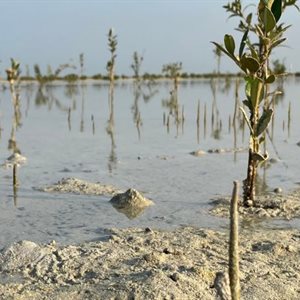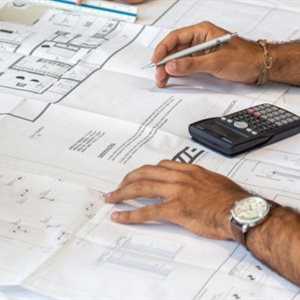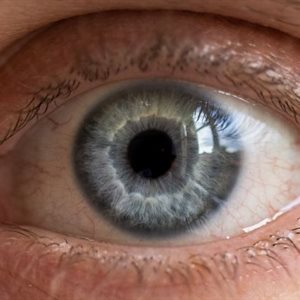At the University of Birmingham Dubai, one of our three thematic research priorities is sustainability. Learn how we seek to address climate challenges, including food and water security, the future of mobility, and associated financial matters and procedures.
Projects

Youth perceptions of sustainability in the UAE
The FCDO funded project titled "Understanding youth perceptions on sustainability in the UAE: co-producing an inclusive environmental education to promote engagement in COP28 and beyond" aims to develop an inclusive environmental education program that equips students at all educational levels with the knowledge and skills needed to promote environmental sustainability and advocate for behavioural change in the UAE. Recognising the importance of youth engagement in addressing environmental challenges, the project addresses a research-informed educational gap and collaboratively engages educators and partners. The University of Birmingham Dubai leverages its expertise and relationships to co-produce educational resources, workshops, and green skill development, with a focus on regional cooperation, youth empowerment at COP28, and identifying essential skills for a sustainable future.
Learn more about the youth perceptions project

Microfluidics
Funded by the ‘UK Science and Innovation Network’ in 2020, Dr Majid Malboubi built a microfluidics research laboratory at the University of Birmingham Dubai campus. The laboratory enables multidisciplinary research at the interface of several disciplines such as engineering, biology and nanotechnology. Currently they are working on the design and fabrication of micro-mixers, micro-separators and microfluidic devices to purify water. Once fully developed these devices can provide clean water for a person, a family, or a village. The University of Birmingham Dubai welcomes collaboration with local, national, and international organisations, leveraging the diverse applications of microfluidic devices across many different fields.

Public Spaces and Factors Affecting Social Sustainability
Funded by the Al Qasimi Foundation Faculty Research Grant (2022-23), the project examines social sustainability in Ras Al Khaimah's (RAK) public spaces. Dr Mohammad Radfar, Associate Professor in Urban Design and Planning, and Dr Rakib Akhtar, Lecturer in Urban Planning, seek to understand the intricate and multi-layered nature of social sustainability, a term that is often ambiguously defined and applied. In addition, our research extends beyond the predominantly Western perspectives on public spaces to explore how these areas are perceived and utilized in culturally distinct settings, such as RAK. Using a multi-site survey methodology, their goal is to present a taxonomy of public spaces in RAK that illuminates public perceptions and offers a nuanced understanding of how these spaces can either contribute to or hinder social sustainability. The outcomes of this research will contribute not only to academic discourse on social sustainability and public spaces but will also have practical implications for urban planning and design in RAK and similar environments. Their findings will guide the development of public spaces that are both culturally sensitive and conducive to social sustainability.

Exploring Urban Public Spaces through Mobile Eye Tracking
Understanding the use and perception of urban public spaces is a vital component in creating socially sustainable places that meet both individual and community needs. Recent technological advancements have offered more complex analyses of human behaviour in urban environments, allowing for the integration of qualitative approaches with physiological data. Funded by the Al Qasimi Foundation Seed Grant (2023-24), the study from Dr Phil Jones, Reader in Cultural Geography, and Dr Mohammad Radfar, Associate Professor in Urban Design and Planning, pilots Mobile Eye Tracking (MET) alongside qualitative methods to understand how people interact with urban spaces in Ras Al Khaimah (RAK). This multimodal approach seeks to explore the public's interaction with the spatial arrangement, sense of place, and functionality of neighbourhoods. By incorporating MET into the research design, we aim to offer more granular insights into how people both physically and emotionally engage with their local settings. Through the combination of qualitative and quantitative data, their objective is to provide evidence-based recommendations that can steer future urban planning efforts toward fostering socially sustainable communities in RAK and similar urban landscapes.
Related departments